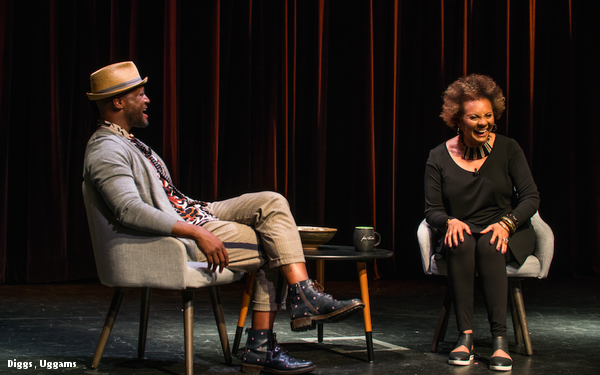
How best to approach the new
SVOD service Stage, whose content is all theater-related?
I like theater, but Stage’s original shows — such as a musical tribute to composer John Kander and an interview with
singer/actress Leslie Uggams — sound a bit too, well, theater-y to me.
Then I see that Stage CEO Rich Affannato encourages non-theater people to start with the service’s
feature films and work their way up to more theatrical content. I figure I can handle that.
From a selection of 20 films in Stage’s “Feature Films” category, I choose a
1931 version of “The Front Page,” offered because it’s based on a 1929 Broadway comedy. I already know the story, having seen a later 1940 filmed version, “His Girl
Friday,” so this may be cheating a little. The public domain print is of poor quality, but I enjoy it nonetheless.
advertisement
advertisement
Next, I graduate to drama, choosing something I’ve never seen
before: Ibsen’s “Hedda Gabler.” Stage offers a 2004 version done in a contemporary setting. But I don't understand what’s going on. Perhaps this version would make sense if I
were familiar with the original.
Time to cut to the chase: I’m ready to try out Stage’s originals with my wife, who is much more knowledgeable about theater — especially
musicals — than I am.
First, we check out “Studio Sessions,” whose first episode is the aforementioned Kander tribute. A bunch of cabaret folk — highlighted by Chita
Rivera — spend an hour doing songs that are obscure even to my wife. Nobody sings anything from “Cabaret” or “New York, New York.” The producers also assume a certain
level of audience knowledge, never explaining who Kander is, or who the oft-mentioned Fred Ebb was (his longtime lyricist, now deceased).
Next, we look at “Crossovers,” where host
Taye Diggs interviews Uggams on the first two episodes. And I get hooked.
After all, in keeping with the meaning of the show’s title — stars who are successful in more than one
entertainment medium — Uggams’ life story has as much appeal to a TV and film fanatic as it does to a musical theater geek.
From guesting on Ethel Waters’
“Beulah” sitcom at age 6 through playing Kizzie on “Roots” in the ‘70s — and, most recently, Bling Al in the “Deadpool” films — this woman has
been on our screens for seven decades.
She is smart and funny, and well aware of her place in history.
She tells a heartbreaking story about how, as a contestant on the “Paul
Whiteman TV Teen Club” (ABC, 1952), she wasn’t allowed to win because another “colored” child had won just a few weeks earlier. But she then goes on to become a regular among
dozens of older white men on “Sing Along with Mitch” (NBC, 1961-1964), a variety show that “became such a hit that the South couldn’t black us out anymore.”
She
insisted on a then-unprecedented largely black crew on her own “Leslie Uggams Show,” which CBS canceled after just 10 episodes in 1969.
Unlike with the Kander-themed “Studio
Sessions,” “Crossovers” explains Uggams’ life from the get-go with a quick but thorough bio full of clips. During the interview, any unexplained references by either Uggams or
Diggs are clarified through on-screen pop-ups cleverly called “Crosschecks.”
Now we’re rolling. My wife and I next watch an episode of a web series, “On the
Patio” (funny), and the first episode of an Australian musical soap opera, “The Divorce” (promising).
Break a leg, Stage.